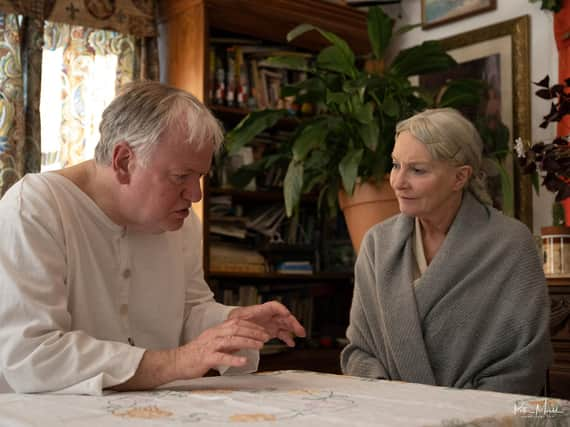Ukraine resonance in post-war drama heading to Hastings


It comes to The Stables Theatre as part of Hastings Fringe Week.
Alan explained: “I am co-starring in the two-hander with Joanna Karlsson. Inspired by a German short story, it is a play which I have written, produced and am performing in. We have already enjoyed a successful two-week run at The Hen and Chickens Theatre in Islington. Joanna is a Hastings resident, as I once was – and I continue to visit on a regular basis.
Advertisement
Hide AdAdvertisement
Hide Ad“The decision to produce and perform it was for me a way of celebrating a milestone birthday. Joanna and I are known for many performances at The Stables in times gone by and it is nostalgic for us to perform there again.
“Although it was written before the Russian conflict with Ukraine and is set in post-WW2, it resonates strongly with the present day. It is thought provoking but also funny and stands on its own as a tender portrayal of an older couple.”
The Loaf of Bread, inspired by the tale Das Brot, by Wolfgang Borchert will be performed on Wednesday, July 27 at 7.30pm. Tickets: £13.50 or £8.50 for members and under-18.
Alan sets the scene: “Hamburg. World War Two is just over. Martha and her husband Hermann have survived, along with their home, though much of the city is still in ruins. Food is scarce and so they have agreed to ration their bread equally to make their scant stock last.
Advertisement
Hide AdAdvertisement
Hide Ad“At 2.30am one morning Martha finds her husband in the kitchen. He is startled. He says he got up because he heard a noise, but on the table is the loaf of bread, which Martha had tidied away the night before.
“So begins a play about trust, fear and guilt, but which, through its warmth and humour, is also one of determination and above all love. Despite its historical setting, it resonates well with the current situation with Russia and Ukraine. Equally, it is a heart-warming play about love and devotion between an older couple.”
Alan added: “Wolfgang Borchert (1921-1947) is best known as the founder of German Trümmerliteratur, literature of the ruins, realistically depicting the physical and spiritual state of Germany immediately after the Second World War. In his short life – he died aged 26 – he also wrote many poems, short stories and essays. Borchert trained as an actor and gained his acting diploma in March 1941, but was called up in the June and sent to the Eastern front, as part of Hitler’s Operation Barbarossa to invade the Soviet Union. He was often in trouble for his anti Nazi outspokenness. Due to increasing ill health, caused by a sensitive liver condition that had been exacerbated by the severe Russian winters, he became practically bed-ridden from November 1945 until his death two years later. It was during these two years that he wrote the play he is best known for: Draußen vor der Tür (The Man Outside) and some fifty short stories, including Das Brot, from which my play The Loaf of Bread draws influence.”